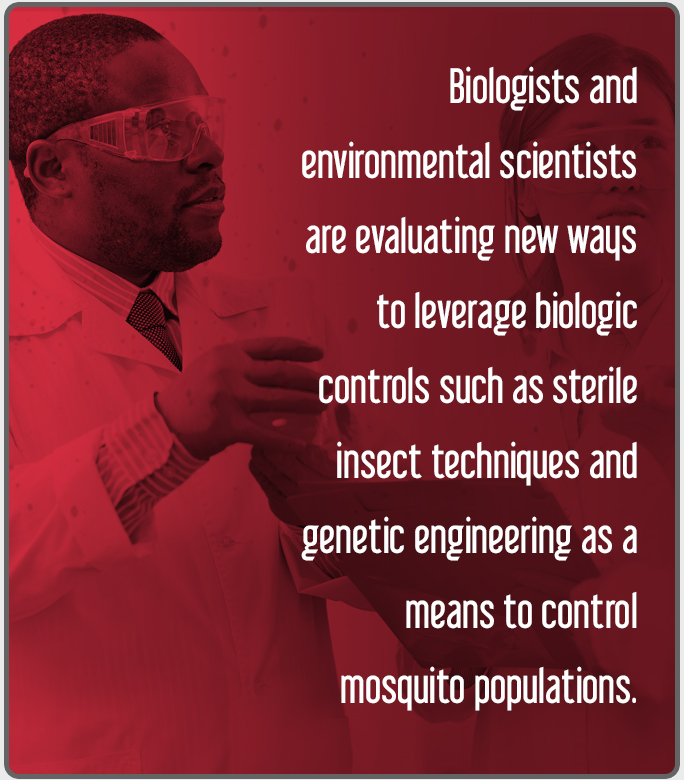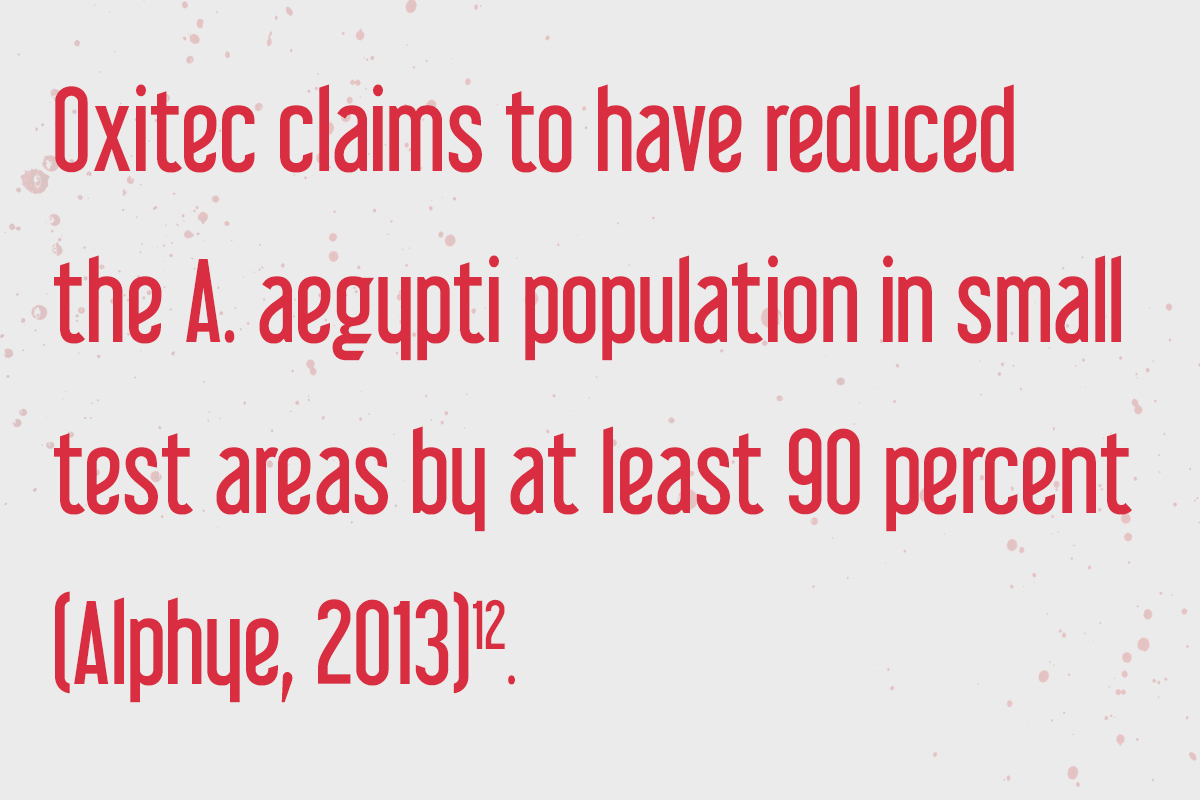Chapter Six
Chapter Six
The Future of Vector Control
The integrated mosquito management methods currently employed by organized control districts and endorsed by the Center for Disease Control (CDC) and the Environmental Protection Agency (EPA) are comprehensive and specifically tailored to safely counter each stage of the mosquito life cycle. Larval control through water management and source reduction, where compatible with other land management uses, is a prudent pest management alternative – as is use of the environmentally friendly EPA-registered larvicides currently available. When source elimination or larval control measures are clearly inadequate, or in the case of imminent disease, the EPA and CDC have emphasized in a published joint statement the need for considered application of adulticides by certified applicators trained in the specialized handling characteristics of these products (EPA, 2016)10.

Additionally, biologists and environmental scientists are evaluating new ways to leverage biologic controls such as sterile insect techniques and genetic engineering as a means to control mosquito populations. These efforts, while effective in controlling the mosquito population, are receiving a great deal of scrutiny due to the lack of safety and environmental studies to show that introducing biologically altered or genetically modified mosquitoes into nature is a safe alternative for mosquito control.
The Oxitec Method
One particular group, Oxitec has applied a method developed by Luke Alphey, a British geneticist specializing in vector control. Partially supported by the Bill & Melinda Gates Foundation, Oxitec has applied the method in Brazil, Malaysia and Panama, and claims to have reduced the A. aegypti population in small test areas by at least 90 percent (Alphey, 2013)12. That’s a far better percentage than spraying, which usually hits about 50 percent and has a tendency to breed resistance, requiring more and more spraying to get the same low result. Recently, the U.S. Food and Drug Administration approved an experiment commissioned by Oxitec in an unincorporated area of South Florida. The locals in the area have protested and are scrutinizing the ethics and handling of such experiments. Their primary concern being the unproven effect of genetically modified mosquitoes that could further concerns about drug resistance and other unintended consequences. (Oxitec, 2016)13.

The Future of Vector Control for the Veterinary Profession
As the human and pet populations continue to expand and our world continues to shrink, mosquito control in the United States will assume a more critical public health function, well beyond its quality of life role. While new ways to control mosquito populations may take years to research and fully understand both efficacy and safety, today the veterinary profession has an opportunity to embrace a new way to control mosquito-borne diseases through effective multi-modal protocols. Because mosquitoes are the only known vector of Dirofilaria immitis, controlling mosquitoes through the use of an on-pet, mosquito repellent insecticide should help control heartworm transmission in much the same way that targeting vectors has been used successfully to control vector-transmitted diseases in people.
10 https://www.epa.gov/mosquitocontrol/joint-statement-mosquito-control-united-states accessed October 16, 2016.
12 Alphey, L., McKemey, A., Nimmo, D., Neira Oviedo, M., Lacroix, R., Matzen, K., and Beech, C. (2013). Genetic control of Aedes mosquitos. Pathog Glob Health 107, 170-179.
13 http://www.oxitec.com/ground-florida-oxitecs-derric-nimmo-part-2/ accessed October 16, 2016.

